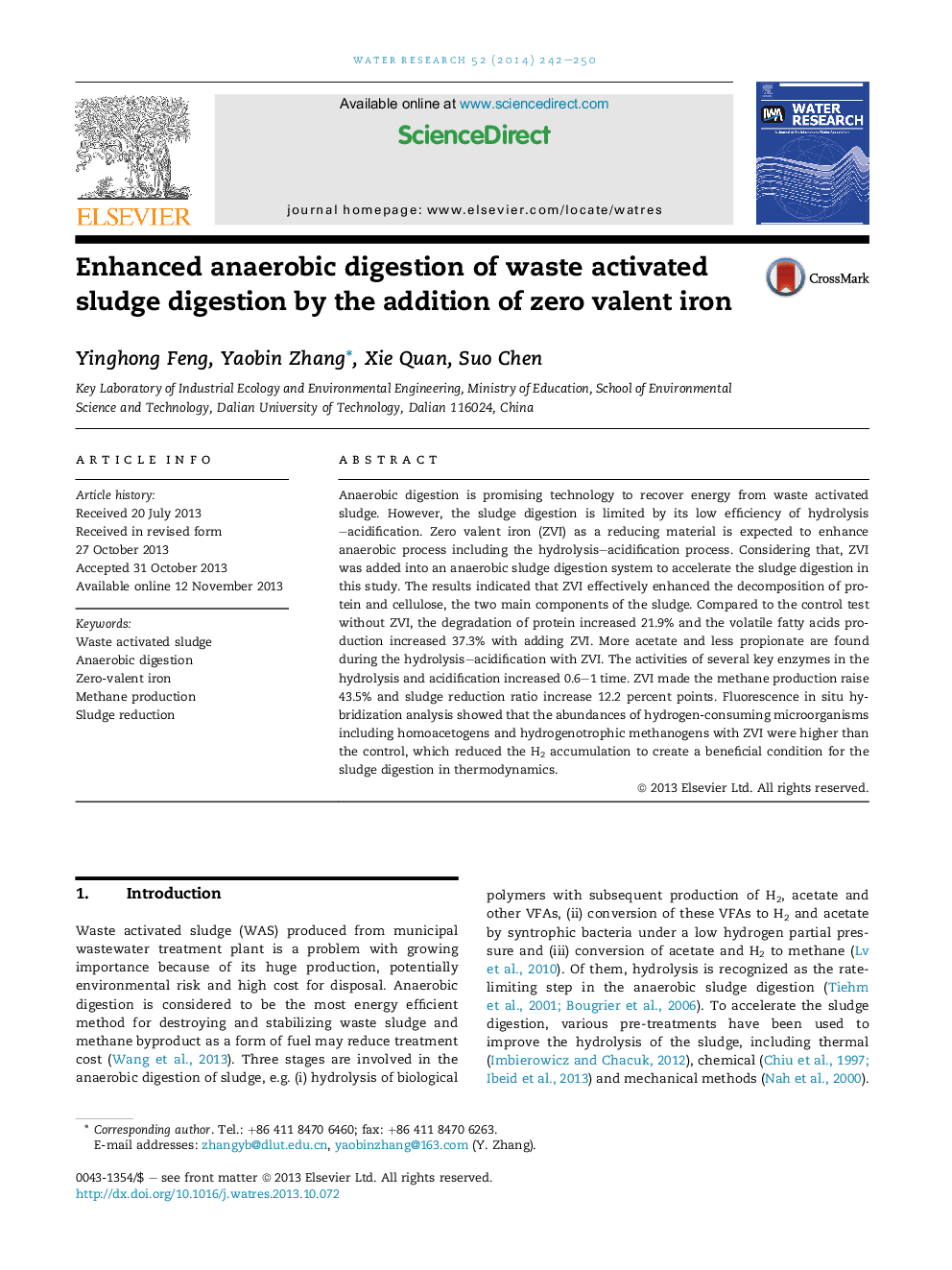| Article ID | Journal | Published Year | Pages | File Type |
|---|---|---|---|---|
| 4481679 | Water Research | 2014 | 9 Pages |
•This study provided a novel method to accelerate the anaerobic digestion of sludge.•ZVI reduced the H2 accumulation beneficial for the sludge digestion thermodynamically.•Adding ZVI into anaerobic digestion of sludge made the methane production raise 43.5%.•The sludge reduction increased 12.2 percent points due to the presence of ZVI.
Anaerobic digestion is promising technology to recover energy from waste activated sludge. However, the sludge digestion is limited by its low efficiency of hydrolysis–acidification. Zero valent iron (ZVI) as a reducing material is expected to enhance anaerobic process including the hydrolysis–acidification process. Considering that, ZVI was added into an anaerobic sludge digestion system to accelerate the sludge digestion in this study. The results indicated that ZVI effectively enhanced the decomposition of protein and cellulose, the two main components of the sludge. Compared to the control test without ZVI, the degradation of protein increased 21.9% and the volatile fatty acids production increased 37.3% with adding ZVI. More acetate and less propionate are found during the hydrolysis–acidification with ZVI. The activities of several key enzymes in the hydrolysis and acidification increased 0.6–1 time. ZVI made the methane production raise 43.5% and sludge reduction ratio increase 12.2 percent points. Fluorescence in situ hybridization analysis showed that the abundances of hydrogen-consuming microorganisms including homoacetogens and hydrogenotrophic methanogens with ZVI were higher than the control, which reduced the H2 accumulation to create a beneficial condition for the sludge digestion in thermodynamics.
Graphical abstractFigure optionsDownload full-size imageDownload high-quality image (180 K)Download as PowerPoint slide
